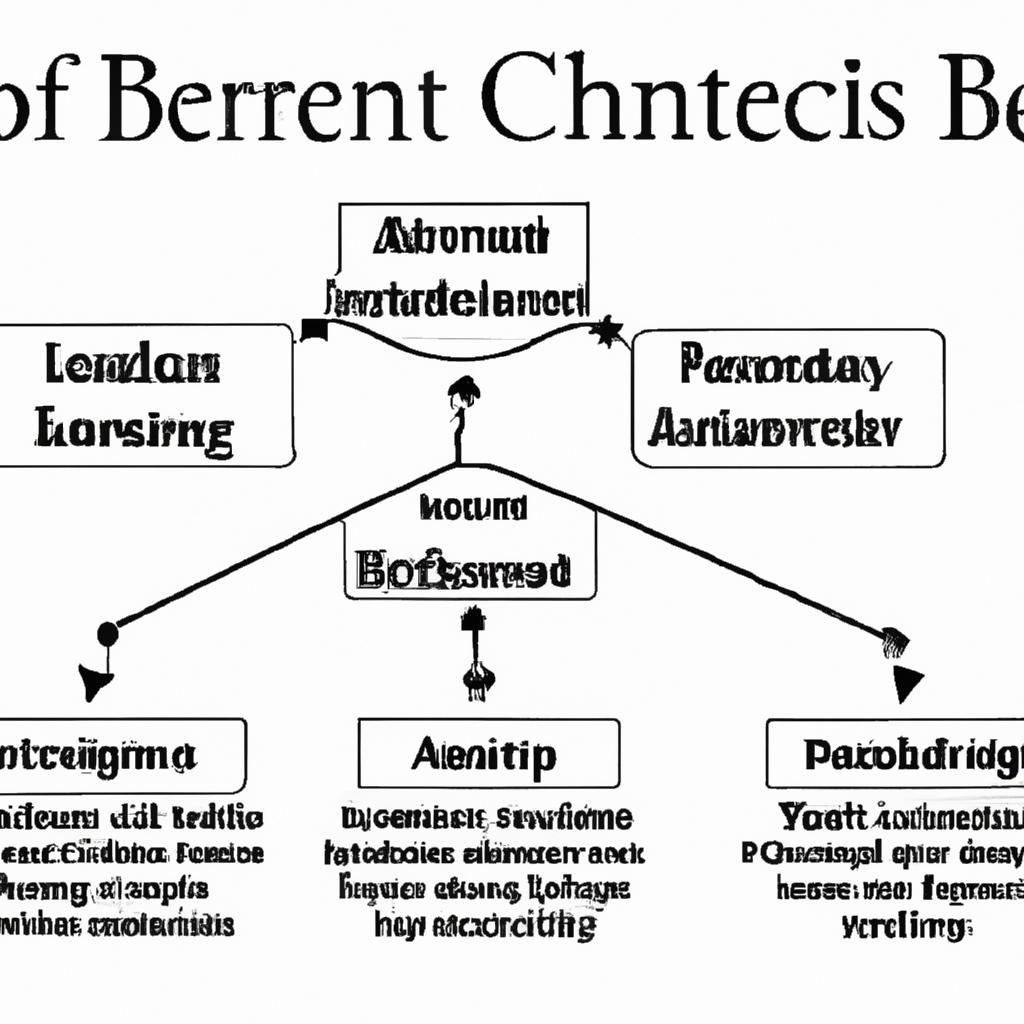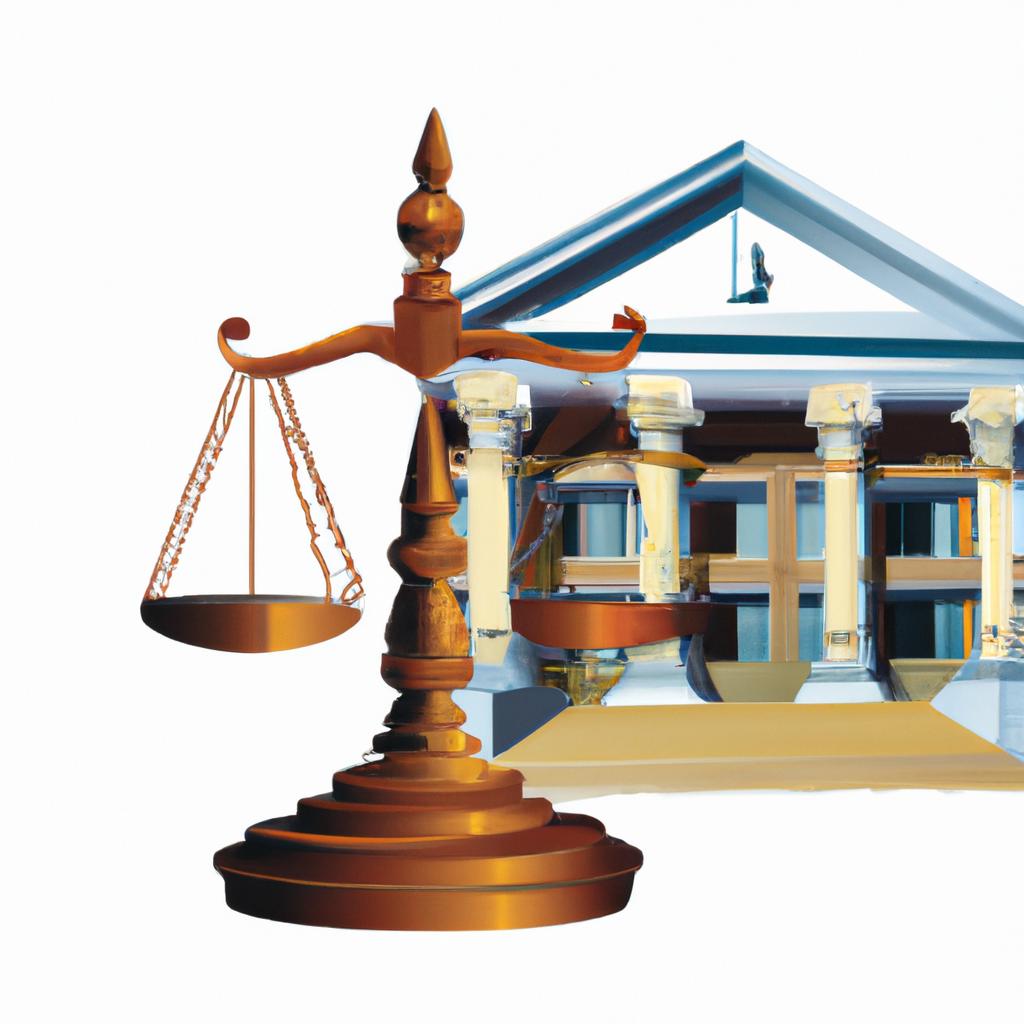In the intricate realm of estate planning, the question of what takes precedence over beneficiaries is often a complex and nuanced one. As skilled practitioners in the field, the experts at Morgan Legal Group in New York City have delved deep into this matter to provide clarity and guidance. Through a thorough examination of the legal principles governing estates, Wills, trusts, and probate, we aim to shed light on the factors that can potentially override beneficiaries in the distribution of assets. Join us as we navigate through the intricate landscape of estate law to uncover the key considerations that may alter the course of inheritance.
Understanding the Legal Hierarchy of Beneficiaries
When it comes to the legal hierarchy of beneficiaries, it is crucial to understand what takes precedence over who receives your assets upon your passing. While your last wishes outlined in your Will or Trust are typically honored, there are certain circumstances where other factors may override these designations.
One key factor that can supersede your designated beneficiaries is the presence of unpaid debts. In the event of outstanding debts, creditors have the right to claim assets from your estate before they are distributed to your beneficiaries. Additionally, certain legal obligations such as spousal rights or court orders may also take precedence over your stated beneficiaries, highlighting the importance of thorough estate planning to ensure your assets are distributed according to your wishes.

Factors that can Override Beneficiary Designations
can have a significant impact on the distribution of assets upon one’s passing. It is crucial to understand these factors to ensure that your assets are distributed according to your wishes. Some common include:
- State law: In some cases, state law may dictate how assets are distributed, regardless of what is stated in a beneficiary designation.
- Divorce: If you fail to update your beneficiary designations after a divorce, your ex-spouse may still be entitled to receive assets.
- Minors: If a minor is named as a beneficiary, a guardian or custodian may need to be appointed to oversee the distribution of assets.
It is essential to regularly review and update your beneficiary designations to ensure that they reflect your current wishes and circumstances. Consulting with an estate planning attorney can help you navigate complex legal issues and ensure that your assets are distributed according to your wishes. By staying informed and proactive, you can avoid potential conflicts and ensure a smooth transfer of assets to your chosen beneficiaries.
| Override Factor | Description |
|---|---|
| Legal Document | If a legal document, such as a will or trust, conflicts with a beneficiary designation, the legal document usually takes precedence. |
| Probate Court Order | Probate court may override beneficiary designations if there is a valid court order directing the distribution of assets. |

Implications of Disputes over Beneficiary Status
Disputes over beneficiary status can have far-reaching implications in the realm of estate planning and probate law. When conflicts arise regarding who is entitled to inherit a decedent’s assets, it can lead to lengthy court battles, strained family relationships, and substantial legal fees. In some cases, the outcome of these disputes can override the wishes of the deceased individual, as outlined in their Will or trust.
It is crucial to understand the factors that can override beneficiaries in such disputes. One key consideration is the validity of the estate planning documents in question. If a Will is found to be invalid due to lack of testamentary capacity or undue influence, the court may disregard the named beneficiaries and distribute the assets according to state intestacy laws. Additionally, certain legal principles, such as the right of a surviving spouse to claim a statutory share of the deceased spouse’s estate, can also override designated beneficiaries.

Recommendations for Ensuring Beneficiary Designations are Honored
One of the most crucial aspects of estate planning is ensuring that your beneficiary designations are honored. Without careful consideration and planning, your hard-earned assets could end up in the wrong hands. It is essential to understand what factors can override your beneficiary designations and take steps to prevent these scenarios.
Some common situations that can override beneficiary designations include:
- State laws that dictate who receives assets if no beneficiary is listed
- Divorce or remarriage, which can affect spousal rights to assets
- Changes in the law that impact how assets are distributed
By staying informed and regularly reviewing your beneficiary designations, you can ensure that your wishes are honored and your loved ones are provided for after you pass away.
Q&A
Q: What is a beneficiary?
A: A beneficiary is a person or entity designated to receive assets or benefits from a trust, will, or insurance policy.
Q: What circumstances can override beneficiaries?
A: Beneficiaries can be overridden in cases where a court order, specific instructions in the trust or will, or changes in circumstances dictate.
Q: Can a beneficiary be removed?
A: Yes, a beneficiary can be removed if they are found to be unfit, disclaim their inheritance, or are deceased.
Q: What are some common reasons for beneficiaries being overridden?
A: Common reasons include disputes over the distribution of assets, changes in family circumstances, or legal challenges to the validity of the trust or will.
Q: How can beneficiaries protect themselves from being overridden?
A: Beneficiaries can protect themselves by ensuring they have a clear understanding of the terms of the trust or will, maintaining open communication with the trustee or executor, and seeking legal advice if necessary.
In Summary
In conclusion, understanding what overrides beneficiaries is crucial when it comes to estate planning and ensuring your loved ones receive the assets you intend for them. By being aware of the various factors that can affect beneficiary designations, you can take proactive steps to protect your assets and provide for your heirs. Remember, regular review and updates to your estate plan are essential to ensure your wishes are carried out as intended. Thank you for reading!
 Understanding what overrides beneficiaries is crucial for anyone who has created a will or trust. A beneficiary is a person or entity who is designated to receive assets or benefits from a will or trust after the death of the creator. However, there are certain situations where the original beneficiary may not receive the designated assets. This is known as an override. Overrides can happen in various scenarios and can have significant implications on the distribution of assets. In this article, we will delve into the details of what overrides beneficiaries and how it can affect your estate planning.
Understanding what overrides beneficiaries is crucial for anyone who has created a will or trust. A beneficiary is a person or entity who is designated to receive assets or benefits from a will or trust after the death of the creator. However, there are certain situations where the original beneficiary may not receive the designated assets. This is known as an override. Overrides can happen in various scenarios and can have significant implications on the distribution of assets. In this article, we will delve into the details of what overrides beneficiaries and how it can affect your estate planning.
### What is a Beneficiary?
Before we dive into the topic of overrides, let’s first understand the concept of a beneficiary. A beneficiary is a person or entity who is entitled to receive benefits or assets from a will or trust. In simpler terms, they are the ones who will inherit the assets after the death of the creator. Beneficiaries can be individuals, such as family members, friends, or even organizations, such as charities or non-profits.
In most cases, the creator of the will or trust can choose to assign different beneficiaries for different assets or name one person as the sole beneficiary of their estate. This decision is entirely up to the creator and can be changed or updated at any time. However, once the creator passes away, the designated beneficiaries have legal rights to the assets or benefits.
### What are Overrides?
An override occurs when a designated beneficiary is unable to receive their designated assets or benefits due to certain circumstances. In other words, an override is an alteration to the original beneficiary designation made by the creator. Overrides can happen in different scenarios, and they can significantly impact the distribution of the estate.
### What Can Override Beneficiaries?
1. Divorce or Separation
One of the most common reasons for an override is a change in marital status. In the case of a divorce or legal separation, the ex-spouse is automatically removed as a designated beneficiary. This applies to all assets designated in the will or trust, including life insurance policies, retirement accounts, and joint bank accounts.
However, if the creator wishes to keep their ex-spouse as a designated beneficiary, they must explicitly state it in the will or trust. Otherwise, the assets will be distributed according to the laws of the state.
2. Death of Beneficiary
Another situation where an override can occur is the death of the designated beneficiary. In such cases, the assets or benefits will be distributed to the contingent beneficiaries, if any. If there are no contingent beneficiaries, the assets will be distributed according to the state’s laws.
To avoid any complications, it is crucial to regularly review and update beneficiary designations, especially in the case of unexpected circumstances like the death of a beneficiary.
3. Disinheritance
A creator can choose to disinherit a beneficiary from their will or trust. This means that the designated assets or benefits will not be passed on to the disinherited individual. This decision should be clearly stated in the will or trust, and the disinherited individual should be notified.
4. Incapacity of Beneficiary
In some cases, a beneficiary may become incapacitated due to physical or mental illness or disability. This can affect their ability to manage and receive assets or benefits. In such cases, an override can occur, and the assets or benefits may be distributed to a designated alternate beneficiary or held in trust for the incapacitated beneficiary.
### Tips for Managing Overrides
1. Update Beneficiary Designations Regularly
As mentioned earlier, regularly reviewing and updating your beneficiary designations can help prevent any complications or overrides in the future. It is essential to keep up with any changes in marital status, family dynamics, or financial situations.
2. Consider Contingent Beneficiaries
When designating beneficiaries, it is recommended to also name contingent beneficiaries. These are individuals or organizations who will receive the assets if the primary beneficiary is unable to, for any reason.
3. Consult with a Professional
Estate planning can be complex, and it’s always best to seek professional guidance when making decisions that can significantly impact your loved ones’ future. An experienced estate planning attorney can provide valuable insights and help you create a comprehensive will or trust that reflects your wishes.
### Conclusion
Understanding what overrides beneficiaries is crucial for anyone who has created a will or trust. It is essential to regularly review and update beneficiary designations to ensure that your assets are distributed according to your wishes. In cases where an override may occur, it is recommended to seek professional guidance to navigate the situation effectively. Remember, a well-planned estate can provide peace of mind for you and your loved ones.











